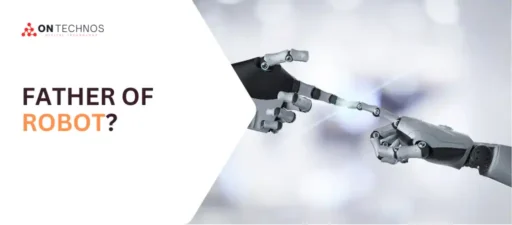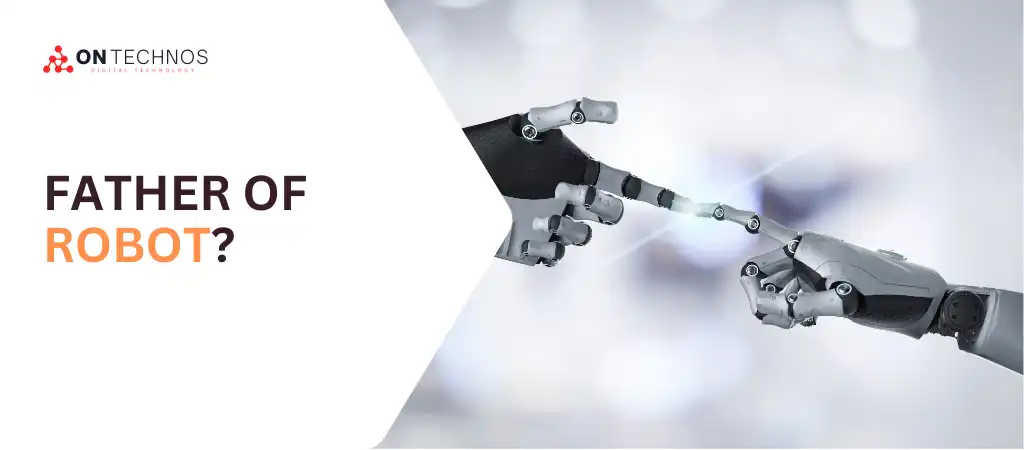The concept of robots has intrigued humanity for centuries, blending the lines between science fiction and reality. One intriguing question that often arises in discussions about robotics is, “Who is the first father of robot?”
This title suggests a pioneering figure who laid the groundwork for the development of robots as we know them today. To answer this question, we must explore the history of robotics and identify the key individuals who have made significant contributions to this field.
In this comprehensive guide, we will delve into the origins of robotics, examine the influential figures who have shaped the field, and ultimately identify the person who can be considered the first father of robot.
The Evolution of Robotics
Early Concepts of Automation
The concept of automation dates back to ancient civilizations. The Greeks, for example, had myths about mechanical beings like Talos, a giant bronze automaton. These early ideas laid the groundwork for the future development of robots. However, these were more mythical and philosophical than practical.
The Industrial Revolution and Early Machines
During the Industrial Revolution, the rise of machines and automation became more pronounced. Figures like James Watt and George Stephenson made significant advancements in machinery and engines, but these contributions were more focused on industrial machinery rather than robots.
Pioneering Figures in Robotics
Karel Čapek
One of the earliest mentions of the term “robot” comes from Czech writer Karel Čapek. In 1920, Čapek introduced the word “robot” in his play R.U.R. (Rossum’s Universal Robots). The play depicted a future where robots, initially created to serve humans, eventually revolt against their creators. While Čapek was not an engineer or scientist, his contribution to the concept of robots was groundbreaking and influential.
Isaac Asimov
Isaac Asimov, a prolific science fiction writer, played a crucial role in shaping modern perceptions of robots. His works, including the Robot series and the formulation of the “Three Laws of Robotics,” have had a lasting impact on both popular culture and the field of robotics. Asimov’s ideas about robots and their ethical implications have influenced the development of robotics and artificial intelligence.
George Devol and Joseph Engelberger
Moving from literature to real-world contributions, George Devol and Joseph Engelberger are two pivotal figures in the history of robotics. Devol, an inventor, created the first programmable robotic arm in the 1950s. Engelberger, often referred to as the “Father of Robotics,” collaborated with Devol to commercialize the robotic arm and establish the field of industrial robotics. Their work laid the foundation for modern robotics, making them strong candidates for the title of the first father of robot.
Defining the First Father of Robot
Criteria for the Title
To determine who can be considered the first father of robot, we need to establish specific criteria.
These might include:
-
Innovation
The introduction of new technologies or concepts that significantly advance the field of robotics.
-
Influence
The impact of an individual’s work on the development and commercialization of robotics.
-
Legacy
The lasting contributions of an individual to the field of robotics and their influence on subsequent generations of engineers and scientists.
George Devol: The Inventor of the First Programmable Robot
George Devol’s invention of the first programmable robotic arm in the 1950s marks a pivotal moment in the history of robotics. His invention, named Unimate, was initially designed for use in industrial settings. Unimate could be programmed to perform repetitive tasks, which was revolutionary for its time.
Devol’s innovation was not merely about creating a new machine; it was about developing a system that could be programmed to perform various tasks, a fundamental concept in robotics. His work laid the groundwork for the development of modern robots and automation systems.
Joseph Engelberger: The Commercializer of Robotics
Joseph Engelberger’s role in the history of robotics cannot be understated. Known for his collaboration with George Devol, Engelberger played a crucial role in commercializing the Unimate robotic arm.
He founded the company Unimation, which became one of the first companies dedicated to the development and production of industrial robots.
Engelberger’s efforts in promoting and commercializing robotics technology helped transform robotics from a theoretical concept into a practical and widely used technology.
His contributions include not only the successful commercialization of robotic systems but also his work in advocating for the integration of robots into various industries.
You Might Be Interested In
- What Are The Two Types Of Supervised Learning?
- Is Machine Learning The Future?
- What Are The Disadvantages Of Robotic Hip Replacement?
- What Can The Robot Do?
- How Have Robots Changed The Way We Work?
Conclusion
In conclusion, determining who can be called the first father of robot involves evaluating the impact and contributions of several key figures in the field. While Karel Čapek’s introduction of the term “robot” and Isaac Asimov’s contributions to the conceptual framework of robotics are significant, the most fitting candidates for the title of the first father of robot are George Devol and Joseph Engelberger.
Devol’s invention of the first programmable robotic arm laid the technical foundation for modern robotics, while Engelberger’s efforts in commercializing and promoting robotic technology helped establish robotics as a practical and influential field. Together, their contributions represent the cornerstone of modern robotics.
Thus, George Devol and Joseph Engelberger are best regarded as the first father of robot, having made foundational contributions that have shaped the development of robotics as we know it today.
FAQs about The First Father Of Robot?
What is the significance of Karel Čapek in the history of robotics?
Karel Čapek’s significance in the history of robotics lies in his introduction of the term “robot” in his 1920 play, R.U.R. (Rossum’s Universal Robots). While Čapek was not a scientist or engineer, his literary work was instrumental in shaping public and intellectual perceptions of robots.
In the play, robots are depicted as artificial beings created to serve humans but eventually rising against their creators, a narrative that has profoundly influenced how we think about robots and automation.
The term “robot,” derived from the Czech word “robota,” meaning forced labor or drudgery, captured the imagination of both the public and future scientists, and has become a central concept in robotics and artificial intelligence.
Čapek’s play also contributed to discussions about the ethical implications of robotics and artificial intelligence, themes that are still relevant today. By envisioning a future where robots could gain autonomy and challenge human authority, Čapek anticipated many of the debates and concerns that surround robotics and AI in contemporary society.
His work has left an enduring legacy in both the science fiction genre and the broader field of robotics, making him a pivotal figure in the evolution of robotic concepts and ethics.
How did Isaac Asimov contribute to the field of robotics?
Isaac Asimov made significant contributions to the field of robotics primarily through his science fiction works and the development of the “Three Laws of Robotics.” His stories and novels, including the Robot series, introduced these laws, which became foundational in discussions about robotic ethics and behavior.
The Three Laws—ensuring that robots do not harm humans, obey human orders, and protect their own existence—have had a lasting impact on both fiction and real-world robotics, influencing how we conceptualize and design artificial intelligence systems.
Asimov’s imaginative exploration of robots and their interactions with humans provided a framework for understanding complex ethical and philosophical questions.
His writing prompted engineers, scientists, and ethicists to consider not just the technical aspects of robotics but also the moral and societal implications of creating autonomous machines. Asimov’s work continues to inspire and challenge those involved in the development of robotics and artificial intelligence, reinforcing his role as a major influence in the field.
What were George Devol’s contributions to robotics?
George Devol’s contributions to robotics were groundbreaking, particularly through his invention of the first programmable robotic arm. In the 1950s, Devol developed a system that allowed machines to be programmed to perform various tasks, which was a revolutionary advancement in automation technology.
His invention, known as Unimate, was the first industrial robot capable of executing repetitive tasks with precision and consistency, transforming manufacturing processes and laying the groundwork for modern robotics.
Devol’s innovation went beyond merely creating a new machine; it introduced the concept of programmable automation, which is central to contemporary robotics. His work made it possible for robots to be adapted for different tasks and industries, significantly increasing their utility and impact.
By enabling programmable automation, Devol’s contributions have had a lasting influence on industrial practices and robotics technology, marking him as a key figure in the evolution of the field.
What role did Joseph Engelberger play in the development of robotics?
Joseph Engelberger played a crucial role in the development of robotics by collaborating with George Devol to commercialize the robotic arm, Unimate. Engelberger’s efforts in founding the company Unimation were instrumental in bringing Devol’s invention to market and establishing robotics as a viable technology for industrial use.
Through his leadership and advocacy, Engelberger helped to transform robotics from a theoretical concept into a practical and widely adopted technology, influencing numerous industries and applications.
Engelberger’s work extended beyond commercialization; he was also a prominent advocate for the integration of robots into various sectors, including manufacturing and research. His contributions helped to popularize the use of robots in industrial settings, driving innovation and growth in the field.
Engelberger’s vision and entrepreneurial spirit played a significant role in shaping the modern robotics industry, securing his place as a pivotal figure in its development.
Why are George Devol and Joseph Engelberger considered the first father of robot?
George Devol and Joseph Engelberger are considered the first father of robot due to their pioneering contributions that laid the foundation for modern robotics. Devol’s invention of the first programmable robotic arm, Unimate, was a significant technological breakthrough, introducing the concept of programmable automation that is central to contemporary robotics
. Engelberger’s role in commercializing this technology and promoting its use in industrial settings further established the practical application of robots, transforming them from theoretical ideas into real-world tools.
Their combined efforts not only introduced groundbreaking technology but also helped to build the infrastructure and market for industrial robots. By developing and promoting a system that could be programmed for various tasks, Devol and Engelberger set the stage for the widespread adoption of robotics across multiple industries. Their contributions have had a lasting impact on the field, making them the most fitting candidates for the title of the first father of robot.







